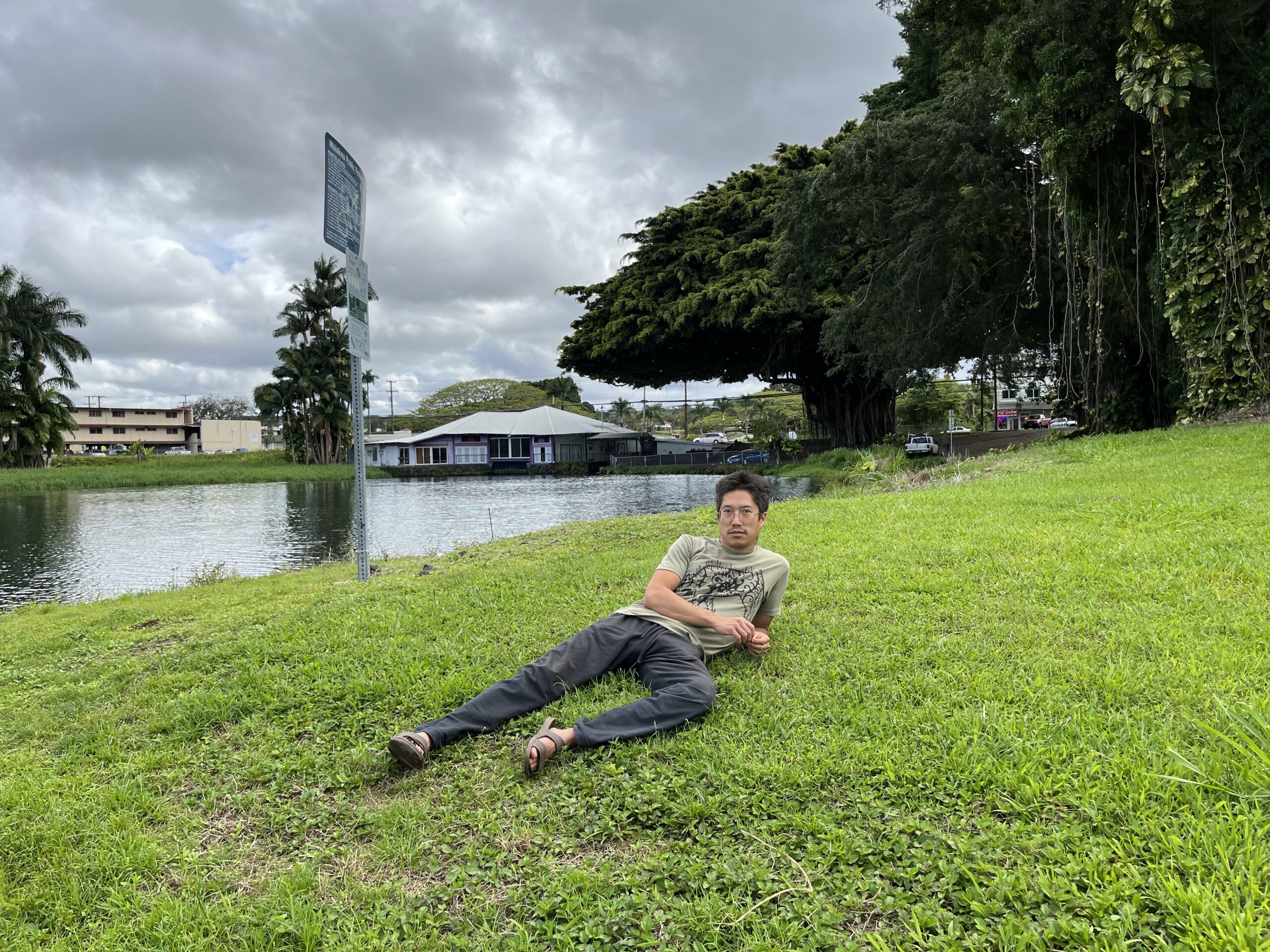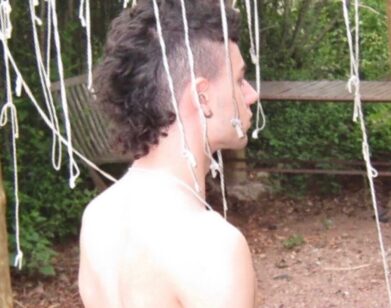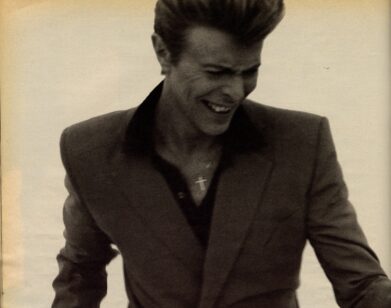WOO WOO
“I’ve Become Much Less Autistic”: Tao Lin on Sex, Drugs, and Spiritual Awakenings
My initial interview with Tao Lin began as a questionnaire, much like the kind I publish on my personal Substack. I found the writer’s responses slim and inscrutable (he answered “I don’t know” to many of the questions, yet requested I leave those responses in the published interview). In my relationship to Lin, as a reader, there was always something not quite right. I would walk away from his work appreciating what I learned but not drawn to him. Between us I felt a chasm that didn’t exist with other writers I’ve enjoyed.
Eventually, things changed. Standing in my kitchen with the painter Paloma Gonzalez-Castellanos, I expressed my aforementioned frustration. Was there something Lin wished people would learn from his many I don’t knows? Was it a kind of performative stoicism? I said all this to Gonzalez-Castellanos, who responded: “I actually like that a lot. There’s a great deal of confidence in not knowing.”
A few days later, when I spoke to Lin over the phone, we established a rapport. Since then, I’ve revisited much of his work, including his excellent essay on the afterlife, which has managed to help alleviate my own debilitating fear of death. Though Lin’s writing is not obviously rhythmic or lyrical, the work’s aesthetic heartbeat becomes apparent when the reader begins to thread, on their own, the emotional sentiments that tie together the unaffected results of his meticulous research. There’s a requirement from the reader to establish the thread, perhaps put in some effort to understand who this man is. But as I’ve found, once Tao Lin’s emotional complexity begins to unravel, the result is rewarding, if not transcendent.
———
GORDON GLASGOW: Was there a specific point in your life that you decided to turn away from Western medicine and focus more on natural, holistic health?
TAO LIN: I’m not sure, because I never used pharmaceutical drugs by prescription. I used them recreationally. And somehow I just always had a distrust of them.
GLASGOW: Was that way of thinking something you picked up from your family, or did it come to you independently?
LIN: As a kid, I was a hypochondriac. I went to doctors a lot. And they never were able to help me. They often made things worse. Like, I had this chronic nosebleed problem and a doctor used a procedure where he stuck a hot piece of metal up my nose to try to cauterize a blood vessel or something, and it made it worse. Then in high school I had lung collapses. Each time I would go to the hospital and they would put a tube in me, and it was the most pain I’d ever felt. That happened three times. Later in life, I figured out that when my lung collapses, I could rest and it would get better on its own. So I didn’t need all those procedures. A series of things like this made me realize that mainstream Western medicine wasn’t going to help me. So I felt like I needed to get healthier on my own.
GLASGOW: So what’s a good example where one thing changed because you let your body do the work as opposed to interfering?
LIN: Depression, anxiety. A psychiatrist would’ve given me antidepressants and benzodiazepines for these, which might have provided short-term relief but would have worsened these problems in the long-term. Over two decades, I’ve been able to cure my depression and anxiety through natural methods. And also, the lung collapses I mentioned. After the three surgeries with the tube in high school, later on in college my lungs collapsed more times, and each time it healed on its own. Eventually, it stopped happening. And I’ve had heart pains throughout my life—which might be related to the surgeries with the tube getting pushed into my lung—and if I’d gone to a doctor for that, they might’ve prescribed a drug. But I didn’t do anything, and now those are gone too. And headaches. And chronic pain and eczema. I’m successfully healing my chronic pain and eczema through diet. I’ve been to a doctor for my chronic pain and they just prescribed an anti-inflammatory and painkillers.
GLASGOW: How much of your physical ailments might stem from emotions?
LIN: From emotions?
GLASGOW: From a certain intensity of feelings.
LIN: I’m not sure. The mental ones obviously are strongly affected by my emotions. But for the physical problems, I’ve found specific physical issues that caused them, so I don’t suspect those to be caused by my psychology.
GLASGOW: I enjoy listening to your perspective on health. It’s similar to the environment I grew up around —my parents’ perspectives. For the most part I agree with what you’re saying. When I was a kid they wanted to put me on ADHD medicine and my mom said no. And I think that saved my life. I don’t think I would’ve been able to become a writer or do well in college if I’d been on, well, time-released meth since I was five or six. But that’s one example, and each one is particular. Do you think there’s any solution to that internal paradox of desiring to heal yourself naturally while existing in an unnatural world?
LIN: I think it’s a matter of your mindset. Because I feel like one could argue that someone without any time or money is actually going to be able to let their body heal better than someone with a lot of money, because they don’t need to waste their time going to a doctor and then suffer the negative side effects of whatever treatment. They can just keep living their life and do cheap things like getting sunlight and better sleep. And going at it with that route, they don’t add any stress to their system. When you engage with Western medicine, it’s all about fear. You have to urgently get to a doctor whenever anything happens. They don’t give you the impression that your body can heal itself. So I would argue that it’s cheaper and takes less of your time to trust your body to heal itself than to engage with Western medicine.
GLASGOW: Stepping back a little, does it kind of annoy you that a lot of people who interview you or want to talk to you about your work tend to ask questions as if you’re a health guru as opposed to an artist?
LIN: I’m fine with it. I’m fine with whatever people want to ask me.
GLASGOW: What was the main reason you started writing?
LIN: It was a reaction to feeling depressed and lonely and alienated and having no form of self-expression. Because since high school—or starting in high school—I was very quiet. I was almost mute. I didn’t talk to people and had few friends. In person I would get really anxious and not be able to talk. But in writing, I was able to express myself, so it came out of that. And then I just got really into writing and reading. I viewed it as a way to enter the world and do something with my life.
GLASGOW: What do you think you would’ve done with your life if not writing?
LIN: Probably something in the arts, like music or drawing.
GLASGOW: Has writing improved your social interactions?
LIN: It helped by giving me something that connected me to other people. It led to me doing interviews and readings and talking to people more. It gave me a lot of practice talking.
GLASGOW: What’s something that you feel people understand very well about you, and what’s something that you feel people consistently misunderstand?
LIN: My writing career—and my life—has had two separate phases that are opposite to each other. I think my writing up until Taipei in 2013 was about depressed, lonely, pessimistic, existential characters. After that, I wrote more from a perspective of hope and optimism. I began to read nonfiction and to want to learn about the world, and I became more spiritual. This is hard for people to internalize, because usually you just want to think of a writer and assume: “Oh, they write about that thing, or their personality is that.” But with me, I’ve had two different phases.
GLASGOW: Why is it so hard for people to accept that an artist grows and changes over time?
LIN: I think it’s easier for regular readers—but for the media, it’s easier to write about someone, or to refer to someone, as a symbol of something. Like, if an article mentions me, the author usually wants to use me as a symbol of someone who writes about the internet or about drugs. The purpose of the article isn’t to be as accurate as possible—it’s to get some point across. Especially if the article isn’t about me. They’re not going to write, “Although Tao Lin has changed in the past 10 years…”—they’ll just leave that out.
GLASGOW: How would you describe your sense of humor?
LIN: Deadpan. Understated. Weird. Quiet.
GLASGOW: Who are the writers you turn to for a sense of meaning or purpose?
LIN: For the first phase of my writing career, I read a lot of Lorrie Moore, Joy Williams, Richard Yates, Lydia Davis. In the second half, I’ve read much less fiction. Now I get inspiration from nonfiction books. Most recently, ones on spirituality—especially books on near-death experiences and reincarnation.
GLASGOW: Your relationship with faith—would you say it’s a blend of different books and perspectives? Or is there an overarching, sort of monotheistic dogma that you relate to?
LIN: It’s a non-denominational exploration. I don’t want to take on any one perspective—it feels limiting. I’ve gotten the most out of researchers who scientifically look at the evidence. Like, a book I read on reincarnation by this hardcore academic Ian Stevenson approached reincarnation strictly through the scientific method, compiling all the cases, looking at the data. That kind of research has been more awe-inspiring to me than, say, The Tibetan Book of the Dead or The Bible. It’s been both more credible and more mind-boggling—and uplifting—to me.
GLASGOW: What’s interesting to me about you is that you’re one of the only writers—or let’s say, literary writers, if that term still means anything—who talks and writes about faith in an empirical way. You do a pretty big amount of research to try and provide structure or evidence to your own sentiments about the paranormal, or alternative realities, or the possibility of God. Would you say that’s an accurate reflection of your approach?
LIN: Yeah, yeah—and thank you for saying that. For noticing and saying that.
GLASGOW: I often write about my own cognitive dissonance—this tension between spirituality and empiricism. I feel one way, yet I know something else. But you don’t stop there—you go further. You do this intensive research into other people’s experiences, cross-referencing them, sure, with a bias, before writing about it in a plain, accessible style. Why do you choose to explore spirituality in this manner?
LIN: In the first phase of my writing career, I just went by what I thought and what I passively absorbed. I deliberately avoided learning about what other people had figured out. I just wanted to express my own unique perspective. But that led to a dead end. I felt like I’d gone as far as I could with that approach and it didn’t lead anywhere—it led to me being addicted to drugs and severely depressed. So I started learning about what other people thought. And I found information that gave me a reason to be happier, to have hope. So I kept going. I found it really rewarding.
GLASGOW: Stepping outside of yourself.
LIN: Yeah. And I’ve already tried writing existential fiction based entirely on my own experiences—I’ve already done that. And I hit a dead end.
GLASGOW: I’ve noticed that, among the best literary writers, there’s often a point in their careers where they say, “I can’t write in the first-person anymore.” Usually the first one, two, maybe three books are all in the first-person, and then they say they had no choice but to step into the third. But even when they do, like with [Roberto] Bolaño, [Martin] Amis, or even [Michel] Houellebecq, the third-person voice is still very internal—a broadened version of themselves. What separates you, I think, is that you truly stepped outside of yourself. You started writing books and long essays about the world through an empirical lens that somehow reflects your subjective emotional reality. That’s a very unique kind of third-person that I haven’t really seen before. Does that make sense?
LIN: I agree with that.
GLASGOW: I was discussing your work with a couple of writers a year or two ago and one of them said, “Well, he’s doing this because he’s autistic.” And I said, “I don’t think it’s just that he’s autistic. I think he’s bored with a certain way of approaching fiction, and he’s interested in showing a new perspective, in experimenting with a new form.” But were they right? Does it have something to do with your history of autism, or your personal experience with it? Or is that just kind of a reductive way of looking at what you’re doing?
LIN: I was more autistic in the first phase of my writing career. I feel like after Taipei, I’ve become much less autistic. So… were they saying I write the way I do now because I’m autistic?
GLASGOW: I don’t know—it felt like the conversation was veering into that grotesque stereotype of Asians being good at math or research, kind of tying that to your writing about autism or your experience with it. And then maybe layering in this general cultural misunderstanding of autism—like they just imagined you as some quiet Asian guy sitting in a library.
LIN: Yeah. That makes sense.
GLASGOW: But when you say your early career was more autistic, that kind of flips that stereotypical assumption on its head. I think that says a lot about society’s misunderstanding of what autism even is. People imagine that a writer with deep emotional insight and self-awareness can’t be autistic.
LIN: Yeah. I feel like now I’ve retained the positive aspects of autism—like my ability to do a lot of research. But in the first half of my career, I was more focused on the negative symptoms, like not being good at social interaction.
GLASGOW: But is the ability to do a lot of research actually an autistic trait?
LIN: I don’t know. I think—well, people with high-functioning autism tend to be better at research just because they’re less inclined to talk to people. They don’t get as much enjoyment out of parties or social things, so they’re more drawn to books. It’s not that they’re inherently better at research—they’re just led to books because they feel uncomfortable around people.
GLASGOW: That kind of leads into what I was going to ask next, which is: where does your comfort with being alone come from?
LIN: Probably just getting used to it in my formative years as a child and teenager. My entire extended family was in Taiwan, and I grew up in Florida. Most of the time it was just my mom around. My dad was at work, and my brother was in college. So I just got used to spending all my time alone—and liking it.
GLASGOW: Do you feel drained after spending a lot of time with people?
LIN: I do, yeah. But I like spending time with friends—a limited amount of time.
GLASGOW: Do friendships give you something that family doesn’t?
LIN: The only family member I’m really close to is my mom. So yeah, friends give me a lot.
GLASGOW: But what about your sexual needs? If you’re not in a relationship, does that bother you? Do you date?
LIN: No, I haven’t been dating. I haven’t had sex since my last relationship ended in 2022, which I’m fine with. It gives me more energy and time to focus on other things. And I know I’ll get back out into the world at some point and try to meet someone, so I’m not worried about it.
GLASGOW: Do you think it’s a myth—or at least a cultural misconception—that people need sex or romantic companionship to feel energized or connected or to fuel creativity?
LIN: Yeah, I think people in our society are probably too fixated on that. I used to be really obsessed with finding a girlfriend. Part of that came from listening to so much music that puts all the focus on love and relationships.
GLASGOW: Why do you think that is?
LIN: Probably because it sells better. People are still really interested in love and sex—it makes sense that there’s so much music about it.
GLASGOW: Here’s a three-part question: do you masturbate? What do you think about pornography? And what’s the relationship, if any, between masturbation and creating art or literature?
LIN: Yeah, I do masturbate, but less over the past three years. I feel better when I do it less, like only once or twice a week. I used to be addicted to internet porn, especially during my drug addiction. I would use amphetamines to write, and afterward I’d be in this zombie-like state with no willpower and I’d just masturbate to porn. But I was able to stop that addiction when I was 33. I remember the exact year because I wrote an essay about it—it’s unpublished. As for the connection to writing, I don’t really think there is one. Masturbation is just something you do for physical pleasure. Writing doesn’t always give you pleasure. It’s more work. So in my opinion, writing is better for your mental health.
GLASGOW: Is it the work that’s good for your mental health, or is it the spiritual transcendence—the process of getting somewhere new?
LIN: Both of them, I think.
GLASGOW: That makes sense. I was talking to a friend of mine—she’s a really great painter—and I mentioned the initial written interview we did. I was telling her how annoyed by you I was, how you just kept saying “I don’t know” to several questions. So we were standing in my kitchen and I was really frustrated as I was telling her this and she just responded, “Well, there’s a lot of confidence in not knowing.” And I was like, “Ohhh, that’s brilliant.” That’s a bit of a digression, but I guess what I’m trying to ask is: was she right?
LIN: Yeah, I think that might’ve been part of it. Partly, I just wanted to promote the idea that it’s okay to say “I don’t know.” Because so often, when people don’t know something, they’ll just try to make something up. I’ve done that a lot before too—in certain podcasts, if I didn’t know the answer and I was in the mindset of wanting to appear like I did know, I’d just start talking. And often it would lead to something that didn’t make any sense and I’d end up wishing I had just said, “I don’t know.”
GLASGOW: Who, living or dead, would you like most to sit down and have a conversation with?
LIN: I don’t have urges to sit down and have a conversation with anyone besides people I already have conversations with, like friends and family, besides a potential future romantic partner.







